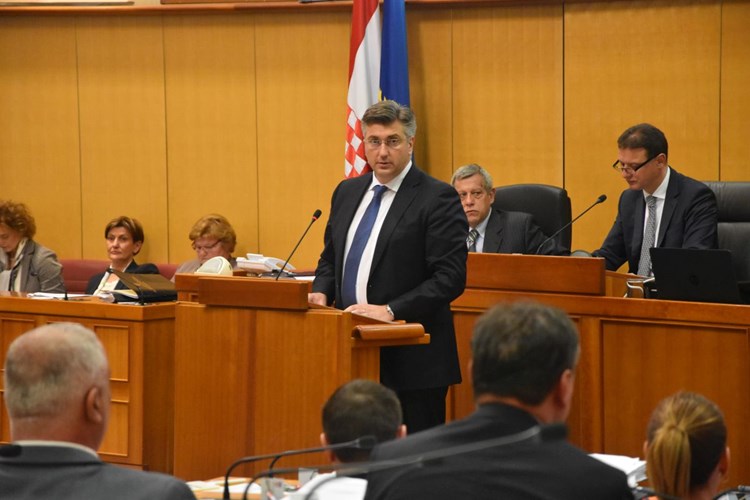


In the last five years 195 people have been killed in Croatia, including 91 women. In 70 percent of cases women were killed by persons close to them and in 54 percent of cases by their partners. Last year, 12,000 offences involving domestic violence were recorded, in which 8,000 women were victims, as well as 552 acts of domestic violence in 84 percent of which women were victims, the PM said.
"The Convention deals with this worrying social phenomenon and offers specific measures for prevention of violence, protection of victims and prosecution of perpetrators," Plenkovic said while introducing the bill in Parliament.
He noted that Croatian family and criminal law experts had also been involved in drafting the Convention, and denied that the inclusion of the Convention on the parliamentary agenda was the result of pressure or dictate.
"This Convention was put on the agenda as a result of the programme and political will of the HDZ government and in cooperation with its partners, not as a result of their pressure. Not as a result of pressure from the opposition, the non-government sector or any international institution. The public must be aware of this because anti-European sentiment has developed in Croatia, which I never thought would happen in Croatia in 2018," the PM stressed.
Implementation doesn't require a billion kuna
Plenkovic denied that the implementation of the Istanbul Convention would require a billion kuna. He said that about 70 million kuna had been allocated for the implementation of the 2017-2022 national strategy for prevention of violence against women.
Plenkovic said that GREVIO, the independent expert body responsible for monitoring the implementation of the Convention, is no "bogeyman" but a typical monitoring body which will not deprive Croatia of its sovereignty.
The PM denied that the Convention would introduce gender ideology into the Croatian legal system. "By ratifying the Convention, Croatia will be under no obligation to introduce gender ideology into its legal system or education system or to change the definition of marriage," he underscored.
Plenkovic also denied that the interpretive statement, which will accompany the ratification act, was irrelevant, saying that it was not a worthless document but a clear instruction on how the Croatian government and parliament read the Convention and how they intended to implement it.
He mentioned the existing laws in which reference is made to gender and gender equality.
The Minister of Demography, Family, Youth and Social Policy, Nada Murganic, said that by ratifying the Istanbul Convention Croatia would join civilised countries aspiring to reach a higher degree of human rights protection.
"The purpose of the Convention is to protect women against all forms of violence, to prevent, prosecute and eliminate violence against women and domestic violence," Murganic said, adding that the focus of the Convention was on prevention, education and raising public awareness that violence was unacceptable.
She said that this Convention was necessary because nothing more could be done in national legislation with respect to preventing violence against women and domestic violence.
Text: Hina